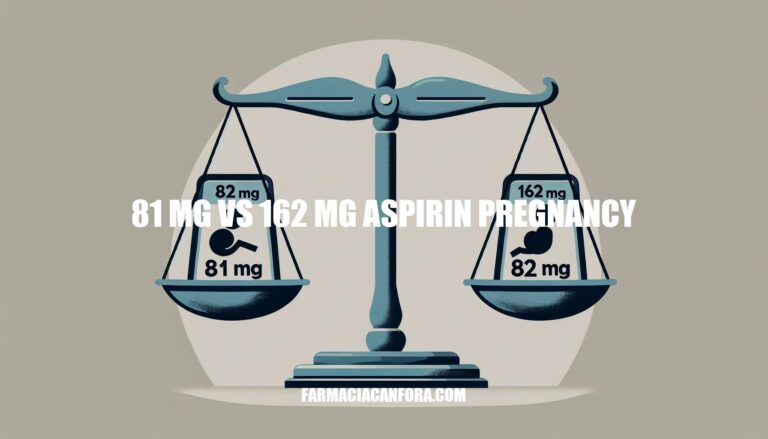


As the debate surrounding the use of aspirin in pregnancy continues to evolve, the comparison between 81 mg and 162 mg dosages has captured significant attention. A recent study shedding light on the efficacy of these different regimens in preventing preterm preeclampsia has sparked interest among prospective parents and healthcare providers alike. By delving into the nuances of this study, we can uncover valuable insights that may influence decisions regarding aspirin dosing during pregnancy.
When it comes to pregnancy and aspirin use, one crucial consideration is the dosage amount. A recent study has sparked interest in the debate between 81 mg and 162 mg aspirin dosages for preterm preeclampsia prevention. As a prospective parent or healthcare provider, understanding the differences between these two regimens can be vital in making informed decisions.
The study highlighted that patients receiving the higher dose of 162 mg aspirin had a significantly lower rate of preeclampsia compared to those taking the standard recommended dose of 81 mg. This finding suggests that the increased dosage may offer enhanced protection against this potentially life-threatening condition. Furthermore, the study found no significant differences in bleeding complications between the two groups, alleviating concerns about potential risks associated with higher aspirin intake.
There are two key takeaways from this study: Firstly, the 162 mg aspirin dose demonstrated a lower rate of preeclampsia compared to the 81 mg dose. This is significant because preeclampsia can have severe consequences for both mother and child if left untreated. Secondly, no significant differences in bleeding complications were observed between the two groups.
This means that healthcare providers can consider prescribing higher doses of aspirin without worrying about an increased risk of bleeding.
For expectant mothers and healthcare providers, this study’s findings offer promising insights into the efficacy of higher aspirin dosages for preterm preeclampsia prevention. As research continues to unfold, it is essential to stay abreast of the latest developments and weigh the potential benefits against any associated risks. By doing so, we can work towards optimizing prenatal care and ensuring a healthier outcome for both mother and child.
In conclusion, the comparison between 81 mg and 162 mg aspirin dosages in pregnancy holds considerable implications for preterm preeclampsia prevention. The study’s findings indicating a lower rate of preeclampsia with the higher dose underscore the potential benefits of opting for a 162 mg regimen. Moreover, the reassuring revelation of no significant differences in bleeding complications between the two groups alleviates concerns regarding increased aspirin intake.
As expectant mothers and healthcare providers navigate the intricacies of prenatal care, the discussion around 81 mg vs 162 mg aspirin in pregnancy serves as a critical juncture for informed decision-making and enhanced maternal-fetal health outcomes.